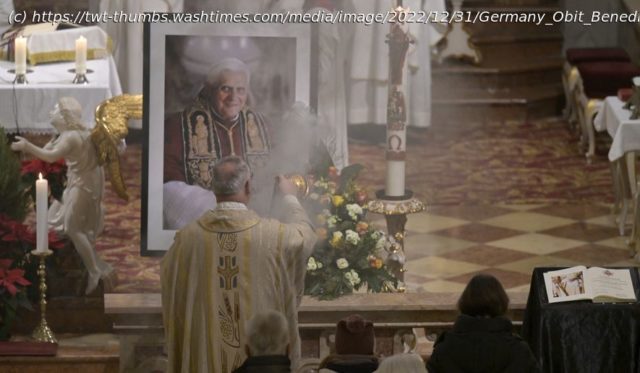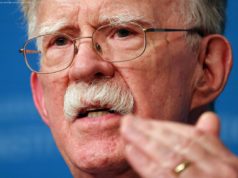Array
Critics of Cardinal Joseph Ratzinger, who in 2005 became Pope Benedict XVI and who shocked the Catholic Church by resigning eight years later, called him the “Panzer Cardinal” or “God’s Rottweiler” after the pugnacious dog breed.
But those who knew the pope emeritus, who died Saturday at age 95, said the sobriquets didn’t fit the quiet, retiring scholar whose idea of a fun evening was dining alone at a restaurant in Rome with a just-purchased book as his dinner companion.
“I didn’t know him well, but I know a lot of people who did know him, and if anything, he was very gentle, very soft-spoken, a bookish academic,” Bishop Robert Barron of the Diocese of Winona-Rochester in Minnesota, said in an interview shortly before Benedict’s death.
Bishop Barron, who also heads the evangelistic Word on Fire ministry, said bishops who visited Rome for annual meetings “almost to a man would say the best [cardinal] to deal with was Ratzinger because of his kindness and also his acuity of mind that he was able to listen to all these perspectives and present a synthesizing view.”
Benedict, the bishop said, “was this very balanced, very reconciling nuanced figure, and I think gave a definitive interpretation of the [Second Vatican] council. I would emphasize his personal kindness and his holiness of life.”
Benedict’s emphasis on Jesus as the incarnation of the “logos,” or word, of God led to his advocacy of reason as the means by which “we can know certain moral and intellectual and aesthetic truths.”
According to Bishop Michael F. Burbidge, head of the Arlington, Virginia, diocese, the late pope was a welcoming figure.
Bishop Burbidge recalled that Benedict’s greeting stood out during his periodic visits to Rome for consultations with church leaders.
“I always remember just his gentleness of, you know, when you would go up to speak with him as a bishop,” Bishop Burbidge told The Washington Times in an interview Saturday. “It was like you were the only one in the room. He was looking right in the eye with a beautiful smile and just offered words of encouragement and thanks for the ministry and assurance of [his] prayers. I left after speaking with him very uplifted and inspired.”
Bishop Burbidge said Benedict was “probably one of the greatest theologians ever to be elected” to the chair of St. Peter, and he “shocked the world” with his first encyclical.
Titled “God is Love,” that “letter to the faithful,” Bishop Burbidge said, “was a beautiful encyclical showing who he really is, how much he wanted people to know that they were loved by God in all of our weaknesses [and] limitations.”
The pastoral letter, the bishop said, “really dismantled some of the perceptions that were out there.”
According to Bishop Burbidge, Benedict “was not so much the ‘enforcer’ as he was the one to invite people to enter into this loving relationship and friendship with the Lord.”
Unassuming cardinal did not flaunt his position
Both Archbishop Dennis M. Schnurr of the Cincinnati Archdiocese and Princeton University law professor Robert P.






